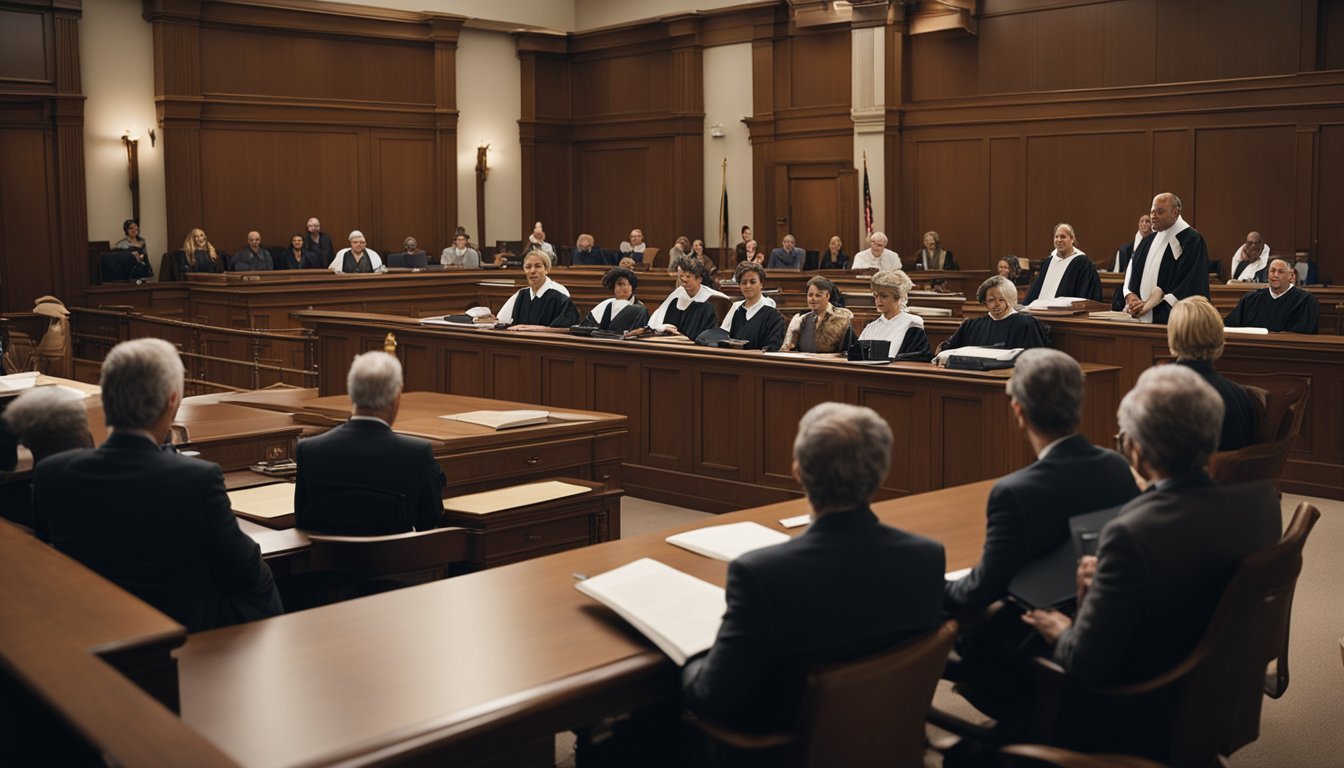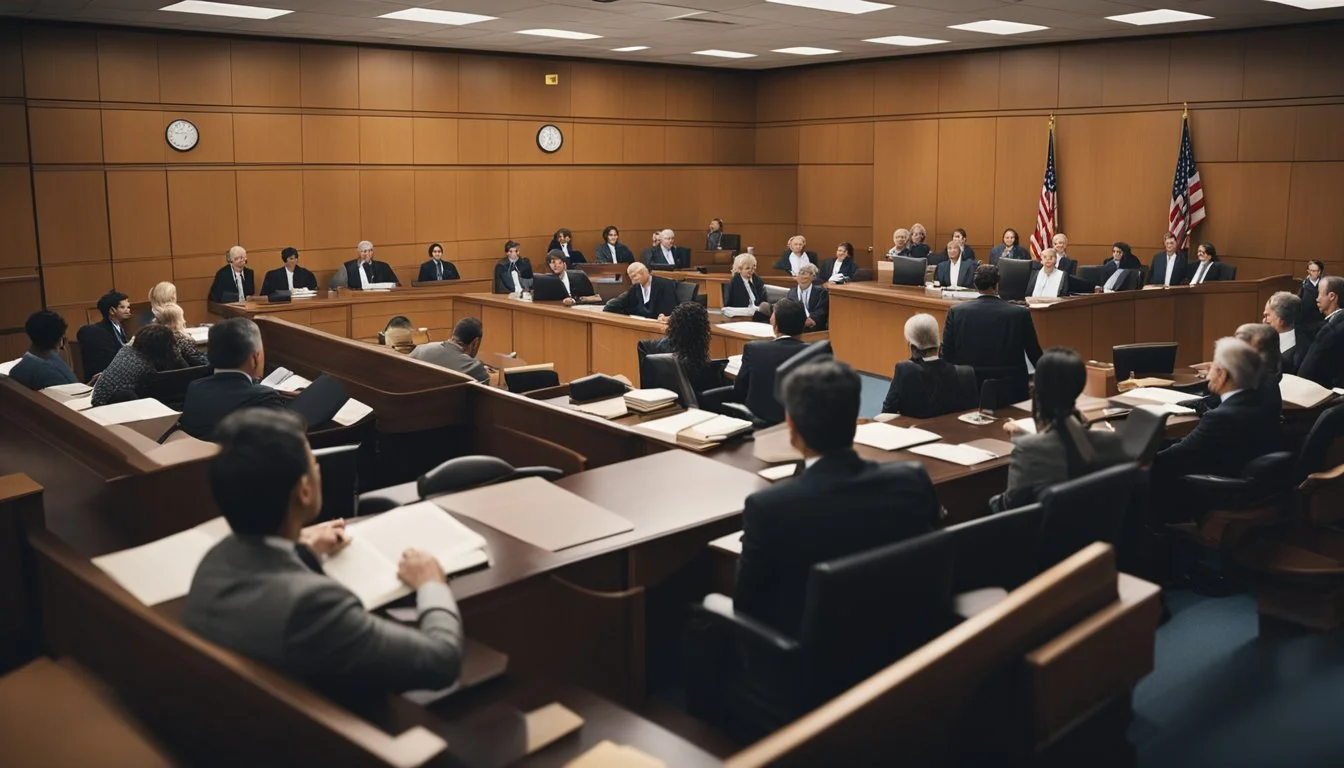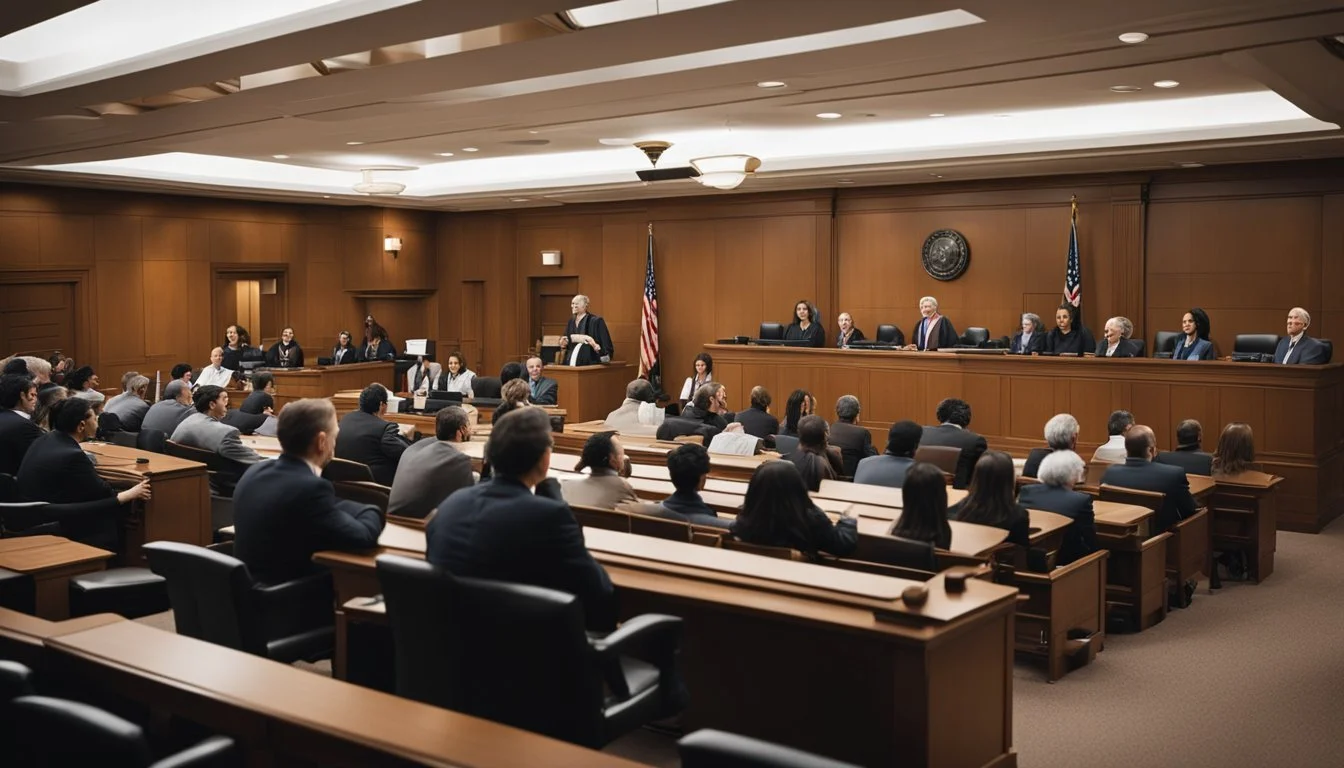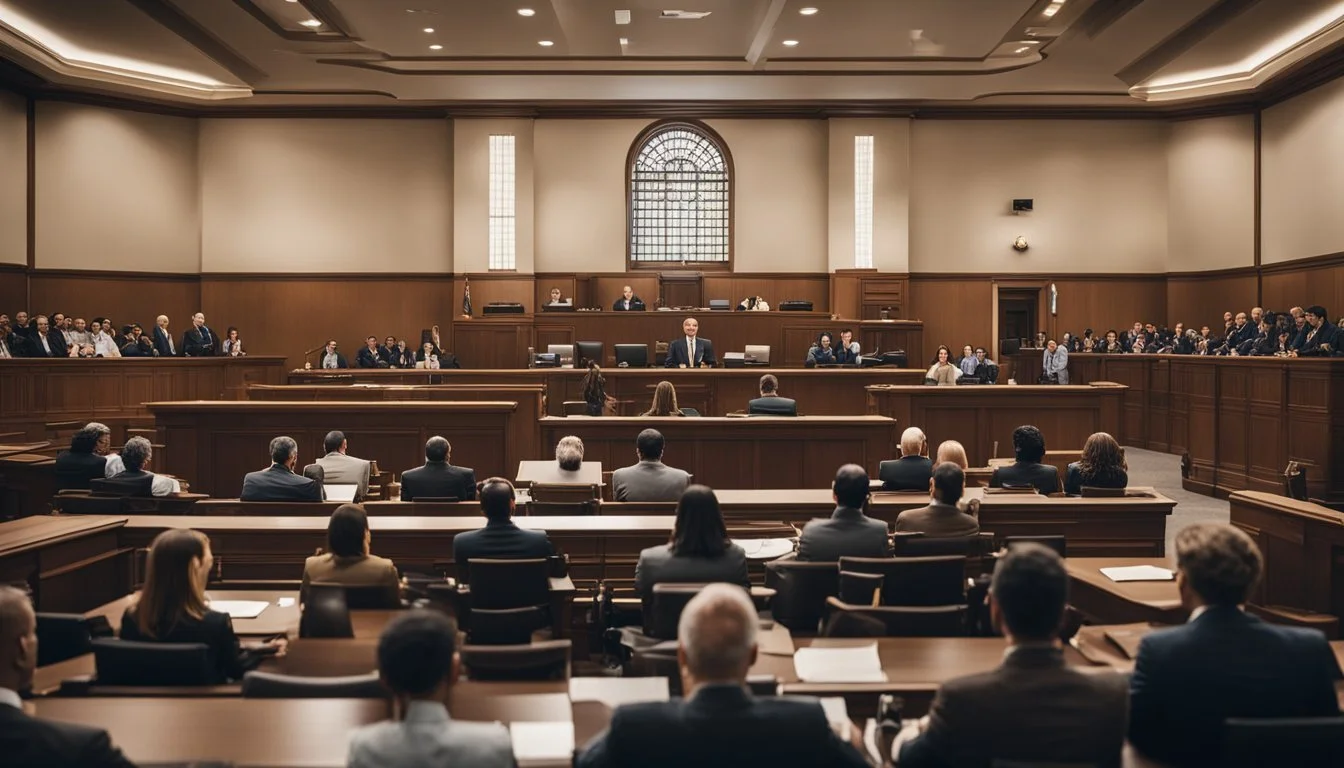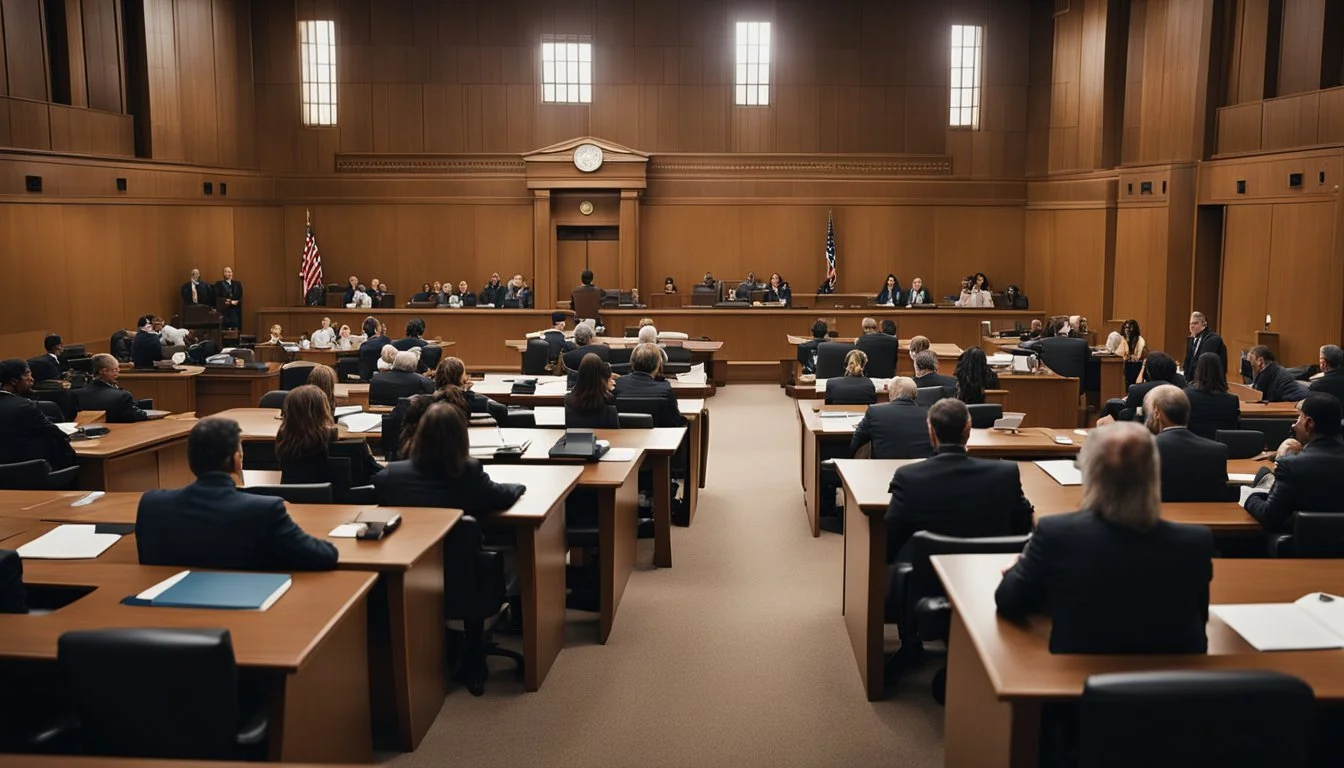Frederick Wiseman: Observing Institutions with Precision and Insight
Frederick Wiseman is a filmmaker known for his unique and insightful documentaries that offer a window into American institutions and society. With a career spanning multiple decades and more than 40 films, Wiseman's work stands out for its meticulous and unobtrusive observational style. This approach allows viewers to gain a profound understanding of various institutions, from educational establishments to cultural and public organizations.
Avoiding conventional interview techniques, Wiseman crafts detailed sequences that emphasize the everyday mechanics and inherent dramas within these institutions. His films, such as "At Berkeley" and "Ex Libris," illuminate the often unseen workings of places like the University of California campus and the New York Public Library. The natural flow of events in his documentaries delivers an authentic portrayal, encouraging viewers to draw their own conclusions.
Wiseman’s innovative style and dedication have earned him a legendary status among documentarians. His focus on the intricate and sometimes mundane details of institutional life reveals deeper truths about the American experience. Through a keen, selective eye and a touch of wry humor, Wiseman presents a candid meditation on the social and cultural fabric that binds communities together.
The Life of Frederick Wiseman
Frederick Wiseman, an influential American filmmaker, is celebrated for his documentary work that explores American institutions. His transition from academia to film and his unique style have established him as one of the most significant documentarians of his era.
Early Years and Education
Frederick Wiseman was born on January 1, 1930, in Boston, Massachusetts.
He pursued a robust educational background, graduating with a Bachelor of Arts from Williams College in 1951.
He then earned a Juris Doctor degree from Yale Law School in 1954. Initially, Wiseman pursued a legal career and eventually became a teacher of criminal law, an experience that profoundly influenced his future work in filmmaking.
Transition into Filmmaking
Wiseman's journey into filmmaking began in the 1960s.
His interest in documenting complex societal structures and institutions inspired his first documentary, Titicut Follies (1967), which focused on a Massachusetts hospital for the criminally insane.
The film's raw portrayal and critical acclaim set the tone for his career. Over the decades, Wiseman produced a diverse portfolio, including notable works such as High School (1968), Welfare (1975), and Public Housing (1997).
Wiseman's documentaries are known for their observational style, devoid of interviews or voiceovers, allowing viewers to draw their conclusions. This approach has led to a nuanced and insightful examination of American life.
Filmmaking Style and Technique
Frederick Wiseman is renowned for his unique approach to documentary filmmaking, characterized by his observational cinema, the absence of conventional narratives, and the use of long takes with minimal intervention.
Observational Cinema
Frederick Wiseman's style is deeply rooted in observational cinema. He immerses the viewer in the environment he documents, allowing events to unfold naturally in front of the camera. His unobtrusive method avoids interviews and voiceovers, creating an authentic, unfiltered depiction of his subjects.
Wiseman's approach ensures that the audience feels like an invisible witness. This technique captures the intricate details of everyday life, painting a comprehensive picture of the institutions he explores. By doing so, he builds a deep connection between the viewer and the subject matter.
Absence of Conventional Narratives
Wiseman's documentaries are known for their lack of traditional storytelling structures. He eschews scripted dialogues, narrations, and preconceived storylines, preferring to let the visuals and actions speak for themselves. This absence of conventional narratives places more demand on the viewer to interpret and find meaning in the footage.
By avoiding overt direction, Wiseman allows his films to present a more genuine and multi-dimensional perspective. The viewer is encouraged to engage critically with the content, drawing their own conclusions based on the unfolding scenes.
Long Takes and Minimal Intervention
Another hallmark of Wiseman's technique is his use of long takes. This method involves fewer cuts and prolonged shots, which adds to the immersive experience. The long takes provide a real-time feel, enabling viewers to observe the minutiae that might be lost in a more heavily edited film.
Wiseman practices minimal intervention during filming. He interacts as little as possible with the participants and settings, preserving the natural flow of events. This technique further enhances the authenticity and credibility of his documentaries, as it presents life as it happens, without the filmmaker’s influence altering the course.
Notable Works
Frederick Wiseman has built an illustrious career by documenting various institutions with an observational style that emphasizes the mundane and the profound in equal measure. His works offer a comprehensive look at American life through the lens of distinctive and often overlooked settings.
Titicut Follies (1967)
"Titicut Follies" is Frederick Wiseman's groundbreaking debut documentary, examining the conditions inside the Bridgewater State Hospital for the criminally insane in Massachusetts. The film is noted for its unflinching portrayal of the mistreatment and neglect faced by the inmates. Its raw and candid sequences depict the grim realities of institutional life, highlighting systemic issues that remain relevant today. This film faced censorship battles and was banned for many years, underscoring its provocative and unsettling content.
High School (1968)
"High School" offers an insightful glimpse into the daily workings of Northeast High School in Philadelphia. Wiseman explores the interactions between students, teachers, and administrators, capturing the educational environment of the late 1960s. The film sheds light on the conformity and discipline imposed in the school system, while subtly critiquing the broader societal expectations placed on youth. Its observational nature reveals much about the cultural and social dynamics of the era.
Welfare (1975)
"Welfare" provides a poignant look at the New York City's welfare system through the experiences of both staff and aid recipients at a welfare office. The film's strength lies in its ability to humanize complex social issues, presenting the personal stories of those who depend on public assistance. Wiseman's camera captures the frustration, despair, and occasional moments of hope that characterize the interactions within the institution, making it a compelling study of bureaucracy and human endurance.
Public Housing (1997)
In "Public Housing," Wiseman turns his lens on the Ida B. Wells public housing development in Chicago. The documentary delves into the daily lives of the residents, showcasing their struggles and resilience within a challenging environment. The film addresses issues like poverty, crime, and community efforts to improve living conditions. Through its detailed and empathetic portrayal, "Public Housing" illustrates the complexities and harsh realities of life in low-income housing projects.
State Legislature (2007)
"State Legislature" is an extensive and immersive look at the workings of the Idaho State Legislature. The film captures the legislative process in action, from debates and committee meetings to the passage of bills. Wiseman's unobtrusive style allows viewers to witness the intricacies of democratic governance, including the negotiations, conflicts, and compromises that shape public policy. By focusing on a smaller state legislature, the documentary underscores the importance of local governance in the broader political landscape.
Themes and Subjects
Frederick Wiseman's documentaries explore the intricate workings of various institutions, as well as the interplay between society and the individual. His films capture both the strengths and the flaws of these systems, providing an insightful critique.
Institutional Examination
Wiseman delves into the operations of institutions ranging from mental hospitals to ballet companies. His approach is observational, avoiding interviews and focusing on the daily routines and systems in place.
By showcasing unfiltered moments, Wiseman reveals how these institutions function and impact the people within them. For instance, in "Titicut Follies", he exposes the grim reality of a mental institution, while "Ex Libris" highlights the vibrant, multifaceted environment of the New York Public Library.
Societal Reflections
His films often mirror broader societal issues and reflect cultural norms and changes. Wiseman’s focus on institutions allows him to comment on how society organizes itself and addresses human needs.
Through his lens, he provides insights into how these structures either fail or succeed in their missions. Films like "High School" and "Hospital" serve as microcosms of American life, revealing broader social dynamics and tensions that are often overlooked.
Community and the Individual
Wiseman’s work also grapples with the relationship between the individual and the larger community. His films document not just the institutions but the human stories within them.
This is evident in "La Danse", where the personal struggles and triumphs of dancers are juxtaposed against the backdrop of the institutional demands of the ballet company. By focusing on individuals, Wiseman highlights the personal impact of societal structures, making his documentaries uniquely compelling.
Critical Reception and Impact
Frederick Wiseman’s documentaries are renowned for their insightful and often critical portrayal of American institutions. His work has garnered significant academic and critical attention, and he has influenced many contemporary documentary filmmakers.
Academic and Critical Analysis
Frederick Wiseman’s body of work has attracted extensive academic scrutiny. Scholars often examine his films for their unique observational style, devoid of narration or overt commentary. This approach highlights the complexities and nuances of the institutions he portrays.
His films are also notable for their ethical considerations in documentary filmmaking. Critics have praised Wiseman for his ability to capture raw, unfiltered moments of institutional life. Frequent discussions in academic circles include the impact of his editing techniques and the ethical dimensions of his filmmaking. Many regard his work as a significant contribution to understanding American social and cultural dynamics.
Influence on Documentary Filmmaking
Wiseman's influence on documentary filmmaking is profound. His understated yet powerful storytelling technique has inspired a generation of filmmakers. By focusing on institutions like hospitals, police departments, and high schools, he established a new form of documentary that emphasizes process and routine over dramatization.
Many documentarians have adopted his fly-on-the-wall approach to capture real-life situations with minimal intervention. His ability to present unscripted reality has cemented his legacy in cinema. Additionally, his films’ critical success has opened doors for documentaries to be more widely accepted and respected within the broader film industry.
Awards and Recognition
Frederick Wiseman has received significant accolades throughout his career. His achievements highlight his substantial impact on documentary filmmaking, while his lifetime contributions underscore his influence on the arts.
Career Achievements
Frederick Wiseman has garnered numerous awards that illustrate his excellence in the field. His film City Hall earned a Nominee position for Outstanding Achievement in Editing at the 2021 Cinema Eye Honors Awards. In 2018, he received another nomination from the same awards for his exceptional editing work.
Wiseman's recognition started early, with critical acclaim and institutional support like the Ford Foundation's backing. He was awarded a prestigious MacArthur Foundation "genius" grant, marking a pivotal moment in his career.
Moreover, his contract with PBS facilitated the widespread dissemination of his documentaries, thus widening his audience and further solidifying his reputation.
Lifetime Contributions to the Arts
Frederick Wiseman's contributions to the arts are both vast and enduring. At 90, he continues to produce impactful work, exemplified by his recent release, City Hall. His efforts have been recognized by prestigious organizations, highlighting the depth of his influence.
Wiseman's work focuses on exploring American institutions with a unique, unfiltered lens. His films have consistently pushed boundaries, challenging audiences to engage deeply with social issues.
The New York Times hailed him as "one of the most important and original filmmakers working today" in 2017, encapsulating his significance in contemporary filmmaking. His ongoing dedication serves as an inspiration to emerging documentarians and artists around the world.
Methodology and Work Ethic
Frederick Wiseman's approach to filmmaking is meticulous and immersive, with a strong emphasis on extensive research and disciplined editing processes. His dedication to capturing the essence of institutions through his unobtrusive camera work has set a high standard in documentary filmmaking.
Research and Preparation
Wiseman begins his projects with comprehensive research. This involves spending extended periods understanding the institutions he plans to document. He examines their daily operations, employees, and the socio-political context in which they operate. This thorough preparation allows him to gain the trust of his subjects and to perform effective unobtrusive filming.
He typically avoids pre-scripted narratives or interviews, believing that these elements can distort the raw and true essence of his subjects. Instead, he immerses himself in the environment, patiently observing and capturing the natural flow of events. This method ensures that the documentary depicts a genuine and unfiltered representation of the institution.
Editing and Composition
Editing is a critical aspect of Wiseman's craft. His raw footage often runs into hundreds of hours, which he meticulously reviews and edits down to create his final film. This painstaking process can take several months, during which he focuses on constructing a coherent and engaging narrative that remains true to the real experiences he has documented.
Wiseman's editing style is characterized by a lack of voice-over narration and minimal use of music, relying solely on the power of the recorded footage to tell the story. He carefully arranges scenes to highlight the contrasts and intricacies of everyday life within the institution, allowing viewers to draw their own conclusions and insights.
By maintaining a disciplined and methodical approach, Wiseman ensures that each of his documentaries offers a profound and reflective look at the institutions he portrays.
Personal Philosophy and Perspectives
Frederick Wiseman's approach to filmmaking reflects a profound belief in the importance of observing social institutions without interference. He views these institutions as microcosms of society, revealing broader truths about human nature and social structures.
Wiseman practices a technique often referred to as "direct cinema." This method emphasizes unobtrusive filming, allowing events to unfold naturally without narration or interviews. He believes this approach provides a more authentic and immersive viewer experience.
Key Aspects of Wiseman's Philosophy:
Neutral Observation: He avoids imposing his interpretations, trusting viewers to form their own conclusions.
In-Depth Narratives: Each film dives deeply into a single institution, capturing nuanced interactions and daily routines.
Long Takes: Extended scenes without cuts foster a sense of being present in the moment.
Wiseman's Perspectives:
Human Complexity: By showcasing the multifaceted nature of institutional life, he highlights the complexities of human behavior and societal norms.
Ethical Responsibility: Despite his neutral stance, Wiseman is conscious of the ethical implications of his work, striving to portray subjects with respect and dignity.
This commitment to a restrained, observational style has made Wiseman a respected figure in documentary filmmaking. His films serve as living records of American life and its myriad institutional systems.
Expressions Beyond Film
Frederick Wiseman's influence extends beyond the realm of documentary films into theater, opera, and education. His multifaceted engagements have enriched each field with his distinct observational style and commitment to depicting authentic human experiences.
Theater and Opera
Wiseman's impact on theater and opera is notable. He has directed and adapted several stage productions, often infusing them with his documentary expertise.
In particular, he adapted his groundbreaking film, Titicut Follies, into a ballet. This transition from screen to stage highlights Wiseman's versatility and ability to capture the essence of human emotion through different mediums.
Key Productions:
Titicut Follies: Adapted to ballet, premiered in Minneapolis.
La Traviata: Directed at the Paris Opera, demonstrating his ability to handle traditional operatic themes with modern sensibilities.
His approach in these productions consistently reflects his deep commitment to authenticity, closely mirroring his filmic technique of prolonged observation and minimal intervention.
Teaching and Mentorship
Wiseman has also significantly contributed to education through teaching and mentorship. His experiences and insights into documentary filmmaking are highly valued in academic settings.
He has conducted masterclasses and workshops at prominent institutions, imparting his knowledge to aspiring filmmakers and students. These sessions often focus on the intricacies of observational filmmaking and the ethical considerations involved.
Notable Contributions:
Harvard University: Regularly invited as a guest lecturer.
Film Workshops: Extensive participation in international film festivals where he shares practical insights.
Through these educational endeavors, Wiseman influences a new generation of storytellers, ensuring the continuity of his documentary ethos and keen observational approach.


